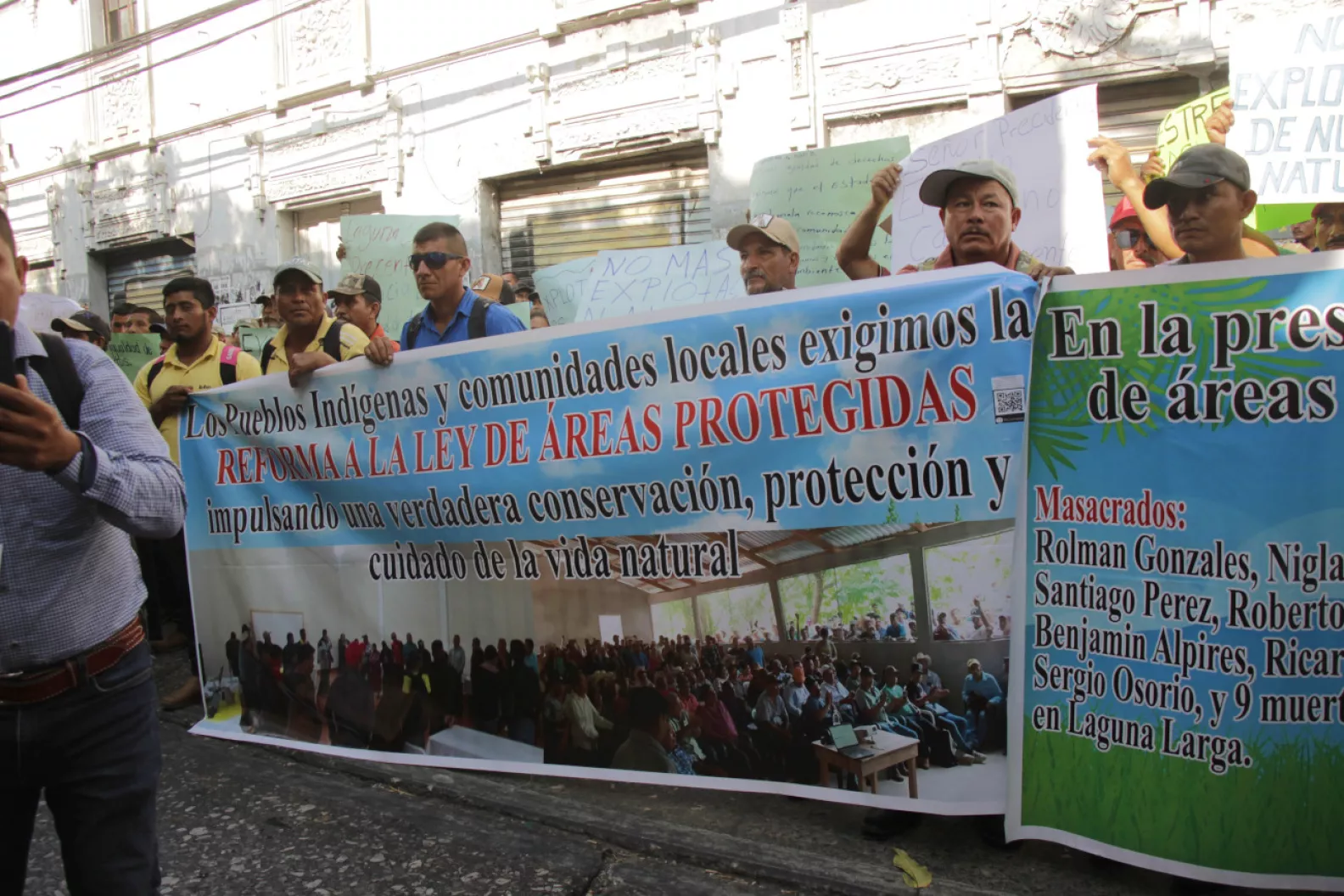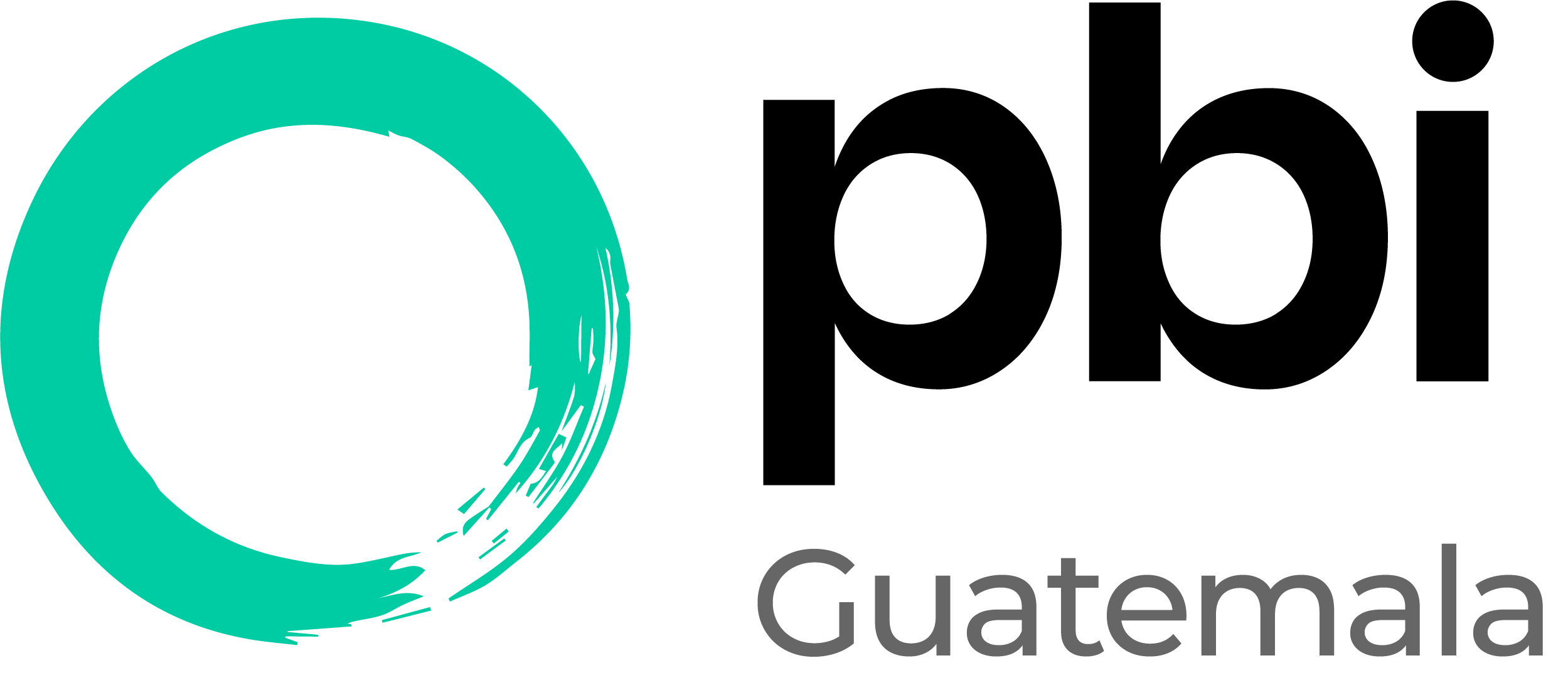for the communities that inhabit the areas

(this article was orginally published in the Bulletin 40, December 2018)
The Protected Areas Law (LAP), ratified in 1989 by Decree 4-89, grants management of protected areas to the National Council on Protected Areas (CONAP). The largest protected areas in the country are located in Petén, affecting many communities who inhabit the area due to legal uncertainty regarding land ownership. The State’s response to this situation was to establish Cooperation Agreements with the communities. However according to a lawyer who provides legal support to these communities, these Agreements are administrative instruments implemented unilaterally by CONAP to allow the populations temporary occupation of these areas until evictions take place. To that effect, there are few communities that have signed the Cooperation Agreement and these are not without risk of eviction and are in the same state of abandonment, criminalization, and subject to arbitrary detentions by the combined forces.
On September 10, 2010, we observed 137 communities from Petén present a manifesto to Congress which stated: our fathers and grandfathers came years ago to Petén (…). , from the southern coast, eastern Guatemala, Alta Verapaz, Huehuetenango and other regions of the country, and colonized with our families and their efforts these Petén lands. They felt pushed to seek new horizons in Petén due to lack of land, hunger, and diverse government programs. Our history and the history of our communities are full of (…) displacements, uprooting and forced relocations. In this manifesto they denounced public policies that made their communities invisible and denied them the right to land, while the State allowed the installation of megaprojects without prior consent. Likewise, they demanded guarantees for the right to life, protection for inhabitants, recognition of communities, suspension and cancellation of megaproject licenses and an investigation of the evictions carried out in La Colorada, El Florido, Centro 1 and other communities to confirm human rights violations perpetrated and guarantee reparation for damage and losses caused.
Seven years after presenting the manifesto, evictions continue in Petén without minimum guarantees for relocation. This is the case of the Laguna Larga community, evicted on June 2, 2017 which at present is in an unfortunate situation as we observed on our visit to the area on the first anniversary of the eviction. Furthermore, in Sierra Lacandón several families from the Pollo Solo community were evicted on August 22, 2018. Some of these families were able to relocate with relatives in Alta Verapaz and Izabal, but others continue to live in an improvised settlement in San Andrés, Petén.
During our observation mission in June of this year, we had the opportunity to visit families from Centro 1, a community in Sierra Lacandón who were violently evicted on June 16, 2009. To date they are still awaiting relocation. We spoke with several community members and one woman recalled that 164 families were evicted and moved to Barrio Santa Cruz (La Libertad, Petén) in the early hours of the morning while it was raining: my daughter was born there, under a sheet of plastic. All of the people we spoke with expressed that their main concern is the lack of land to cultivate and the difficulty to find work to subsist. These families live in extreme poverty and feel totally abandoned by the State as no authority will meet with them. In addition, the eviction of Centro 1 was made worse by the fact that the government of Alvaro Colom not only alleged they were occupying protected areas but also justified the eviction as a way of fighting drug trafficking.
Journalist, Óscar Martínez, reports how at 10am on June 16, 2009 the military, police, and other authorities introduced with the Centro Uno community, a new way of carrying out massive evictions of campesinos in Petén. One hundred sixty-four families from the community which was established before the signing of the peace agreements in 1996 were removed by a few families without permission. Some families arrived even earlier, in 1992. The majority, relatives of the pioneers, arrived in the next five years from Ixcán, Izabal, Quiché, and Cobán. They had wandered looking for a place to settle and land to cultivate away from the war. The journalist interviews one of the campesinos from the community who illustrates his experience during the eviction: (…) they gave us a half hour to evacuate. I managed to grab my four children. I left a corn press about two square meters in size. I had it at my home along with 17 acres of squash seeds ready to harvest. Everyone lost everything”.
The aforementioned anniversary of the forced eviction in Laguna Larga took place last June and was attended by representatives of the Human Rights Ombudsman’s office (PDH) . The PDH made a public statement to highlight the State’s violation of human rights including access to adequate housing, health, food, security, education, access to water, a healthy and safe environment for inhabitants of this community. In this statement the PDH also gave several recommendations to Guatemalan authorities and concludes that there will be no peace in Guatemala as long as there are attitudes of tolerance to human rights violations. During the PDH’s visit to the community, in muddy and rainy conditions, community leaders told them that due to their current living conditions they feel like they are being treated worse than dogs and that children cry asking to go home. According to experts consulted by PBI, the deplorable situation in which the families of Laguna Larga are forced to live sets a precedent for no more evictions to trigger such humanitarian crisis.
The Alternative Proposal
In this paradoxical context where transnational companies are permitted to enter lands declared protected areas, while campesino families are prohibited, communities proactively put forth an Alternative Proposal for Integrated and Sustainable Development for Communities affected by the declaration of Laguna del Tigre and Sierra Lacandón as protected areas. In this proposal communities manifest their multicultural composition which is the result of migrations of different indigenous peoples from other regions of the country. Likewise, they call on the Guatemalan State to recognize, ensure, and guarantee the communities’ right to remain in Sierra Lacandón and Laguna del Tigre, while including them in the development of the nation by guaranteeing them the right to their own land, citizen participation for integrated development, and the fulfillment of human rights. They propose that the communities themselves in alliance with other communities or non-governmental entities be the ones who manage, plan, and execute their own sustainable community development projects. In reference to land security they emphasize the importance of the collective nature land ownership and request the non-repetition of evictions be guaranteed, the resettlement of communities who were evicted by force. They call for the State fulfill its institutional functions through the corresponding government agencies, demilitarizing the region while guaranteeing the necessary security measures to protect the campesinos from organized crime. They also expressly ask the State to not renew or grant licenses and contracts for industrial activities that damage the ecosystem and that affect the right to a healthy environment. In this manner, they manifest their commitment to care for, protect, and ensure natural resources of the area for future generations. In contrast to monoculture practices, communities propose to sustain biodiversity in order to better conserve the land.
The presentation of this proposal generated expectations both on the departmental and national levels. A dialogue space between communities and competent government entities was briefly created before being abruptly interrupted by the arrest of community leader Jovel Tovar from La Mestiza in March 2017 for the crime of usurpation of protected areas, and by the eviction of the Laguna Larga community in June of the same year. Dialogue has not been resumed to date and the communities continue to wait for the guarantee of their right to a dignified life.
